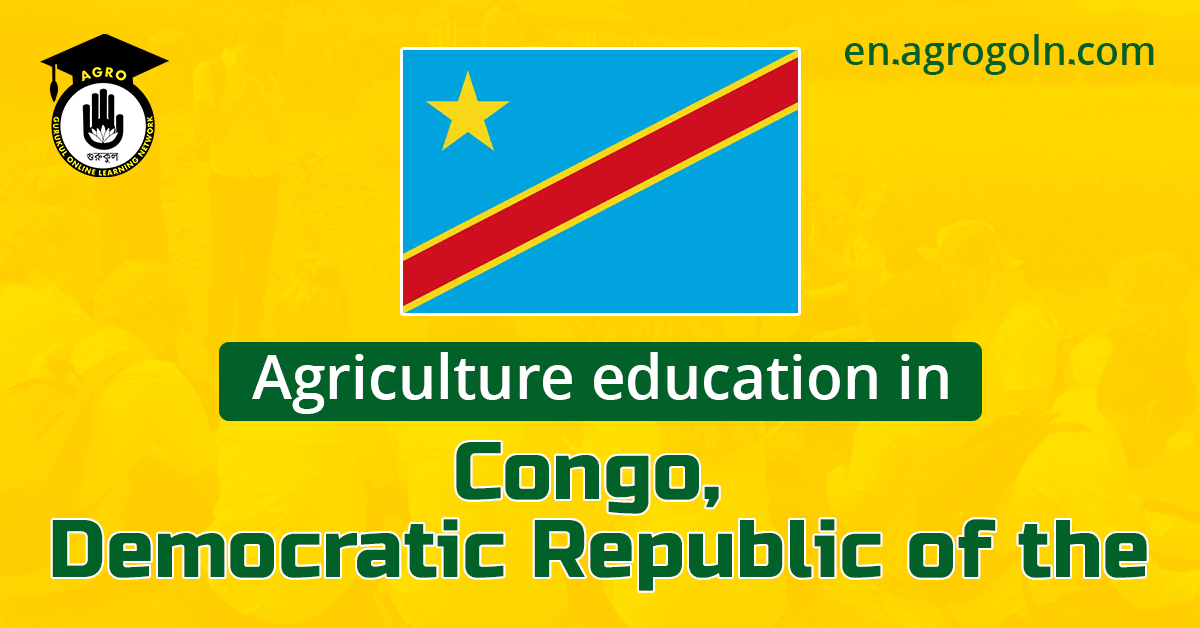The Republic of the Congo, often referred to as Congo-Brazzaville to distinguish it from its larger neighbor, the Democratic Republic of the Congo, is a nation located in Central Africa. Rich in natural resources, the Republic of the Congo’s economy relies heavily on petroleum and mining. However, agriculture remains a significant sector, employing a considerable proportion of the population. As such, agricultural education in the country is of paramount importance, both to promote sustainable practices and to boost the sector’s growth.
Historical Overview
Traditionally, agriculture in the Republic of the Congo was based on small-scale subsistence farming. Most of the agricultural knowledge was handed down orally through generations. With the onset of colonization, new farming methods were introduced, and the necessity of formal education in agriculture grew apparent. However, it wasn’t until after the country’s independence in 1960 that significant strides were made in this area.
The Importance of Agriculture in the Republic of the Congo
Agriculture plays a multifaceted role in the Republic of the Congo’s socio-economic fabric:
- Economic Relevance: Despite its oil-rich status, agriculture offers immense potential for diversification of the national economy. Crops like cassava, maize, sugarcane, and yams are staples, while cocoa, coffee, and palm oil represent potential cash crops.
- Employment: A significant portion of the Congolese population relies on agriculture for their livelihood, especially in rural areas.
- Sustainability and Food Security: As global climatic changes threaten food systems worldwide, local and sustainable agricultural practices become crucial for countries like the Republic of the Congo. Proper agricultural education can aid in ensuring the nation’s food security.
Agricultural Education Landscape
In the Republic of the Congo, agricultural education can be viewed from two main perspectives:
- Formal Education:
- Primary and Secondary Levels: Schools in rural areas often incorporate basic agricultural practices into their curriculum, blending theoretical knowledge with practical skills.
- Tertiary Level: Several institutions in the Republic of the Congo offer specialized programs in agriculture. Notably, Marien Ngouabi University in Brazzaville has faculties dedicated to life sciences and agricultural sciences. These faculties provide research opportunities and formal courses to impart advanced agricultural knowledge to students.
- Informal Education:
- Community Training: Non-governmental organizations and international bodies sometimes conduct community-based training sessions. These are particularly beneficial for farmers, equipping them with new skills and introducing them to modern agricultural technologies.
- Farmer Extension Services: These services are crucial in bridging the gap between research institutions and actual farmers in the field. Through extension services, farmers are introduced to the latest best practices, technologies, and sustainable farming methods.
Challenges in Agricultural Education
Despite its importance, several challenges plague the realm of agricultural education in the Republic of the Congo:
- Insufficient Infrastructure: Many educational institutions, particularly in rural areas, lack the necessary facilities and resources to impart quality agricultural education.
- Gap between Theoretical Knowledge and Practical Application: The education system often emphasizes theory over hands-on practice, leaving students ill-prepared for real-world challenges.
- Limited Reach of Extension Services: While extension services exist, their reach is limited, often excluding remote farming communities.
- Lack of Funding: Both formal and informal agricultural education platforms face significant funding challenges, limiting their growth and effectiveness.
The Way Forward
Addressing the challenges of agricultural education is vital for the Republic of the Congo’s future. Some potential solutions include:
- Strengthening Public-Private Partnerships: Collaboration between the government and private entities can drive investments into the agricultural education sector.
- Emphasizing Practical Training: Curriculum reforms can focus on real-world applications, including internships, fieldwork, and community projects.
- Leveraging Technology: Digital platforms, like e-learning portals, can extend the reach of agricultural education, especially in remote areas.
- Strengthening Extension Services: Investing in extension programs can ensure that innovations and research from academic institutions benefit the broader farming community.
Conclusion
The Republic of the Congo, with its rich arable lands and water resources, holds significant agricultural potential. Realizing this potential requires a robust agricultural education system. By addressing the existing challenges and leveraging opportunities, the Republic of the Congo can not only ensure food security for its citizens but also position itself as a significant agricultural player in Central Africa.
